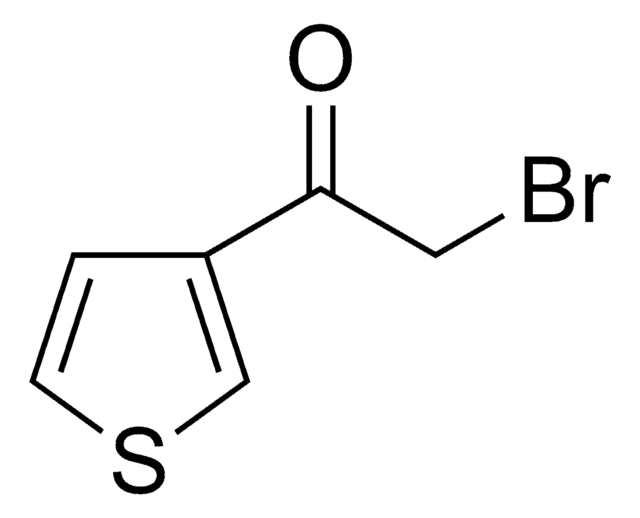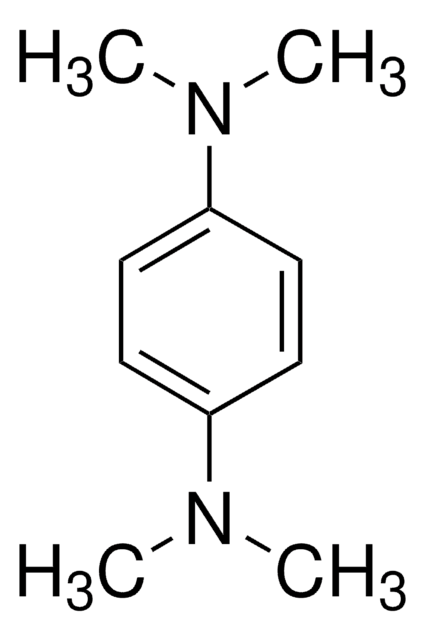740411
Potassium azide
≥99.9% trace metals basis
Synonym(s):
Azidopotassium
Sign Into View Organizational & Contract Pricing
All Photos(2)
About This Item
Empirical Formula (Hill Notation):
KN3
CAS Number:
Molecular Weight:
81.12
EC Number:
MDL number:
UNSPSC Code:
12352125
PubChem Substance ID:
NACRES:
NA.22
Recommended Products
Quality Level
Assay
≥99.9% trace metals basis
form
solid
mp
~300 °C (decomposition)
functional group
azide
SMILES string
[K+].[N-]=[N+]=[N-]
InChI
1S/K.N3/c;1-3-2/q+1;-1
InChI key
TZLVRPLSVNESQC-UHFFFAOYSA-N
Application
Potassium azide can be used as a reagent to synthesize:
- 3-O-(3-Azidoopropyl)estrone from 3-O-(3-methanesulfonyloxypropoxy)estrone via nucleophilic azidation in the presence of imidazolium catalyst.
- Azido phenacyl derivatives from α-bromoacetophenone derivatives in the presence of tetrabutylammonium bromide as a catalyst.
- 1-Azido-4-fluorobenzene from potassium (4-fluorophenyl)trifluoroborate in the presence of cupric triflate as a catalyst.
Signal Word
Danger
Hazard Statements
Precautionary Statements
Hazard Classifications
Acute Tox. 2 Oral
Storage Class Code
6.1A - Combustible acute toxic Cat. 1 and 2 / very toxic hazardous materials
WGK
WGK 3
Flash Point(F)
Not applicable
Flash Point(C)
Not applicable
Choose from one of the most recent versions:
Already Own This Product?
Find documentation for the products that you have recently purchased in the Document Library.
Customers Also Viewed
tert-Alcohol-functionalized imidazolium ionic liquid: catalyst for mild nucleophilic substitution reactions at room temperature
Shinde S, et al.
Tetrahedron Letters, 50, 6654-6657 (2009)
An efficient method for synthesis of phenacyl derivatives under homogeneous phase transfer catalyst condition in aqueous media
Sayyahi S, et al.
Chinese Chemical Letters = Zhongguo Hua Xue Kuai Bao, 22, 300-302 (2011)
A M Liashchuk et al.
Zhurnal mikrobiologii, epidemiologii, i immunobiologii, (4)(4), 65-68 (2006-09-01)
A highly purified TUL4-CBD chimeric protein was obtained by one stage purification method. TUL4-CBD protein consists of TUL4 Francisella tularensis mature peptide sequence, Gly-Ser spacer and cellulose binding domain (CBD) of Anaerocellum thermophilum. The TUL4-CBD protein was shown to induce
A M Egorov et al.
Biochimica et biophysica acta, 659(1), 141-149 (1981-05-14)
Modification of 12 arginine residues per molecule of formate dehydrogenase (formate : NAD+ oxidoreductase, EC 1.2.1.2.) from the methylotrophic bacterium, Achromobacter parvulus I, by 2,3-butanedione results in complete inactivation of the enzyme. Inactivation of the enzyme is reversible and proceeds
Copper-mediated functionalization of aryl trifluoroborates
Schimler S, et al.
Synlett, 27, 2279-2284 (2016)
Our team of scientists has experience in all areas of research including Life Science, Material Science, Chemical Synthesis, Chromatography, Analytical and many others.
Contact Technical Service












